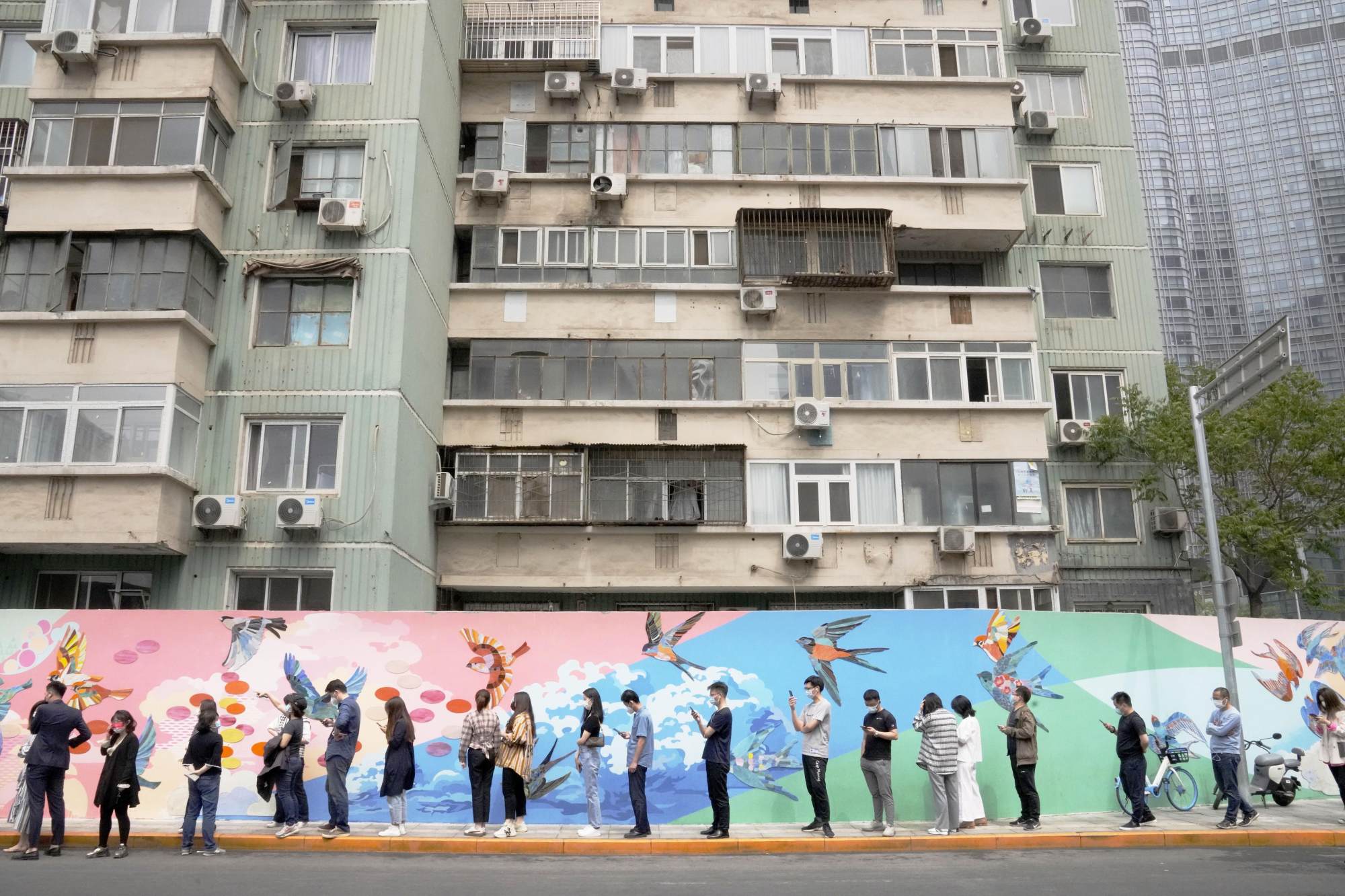
Chinese tier-one cities lose their shine in wake of strict Covid-19 restrictions
- High costs of living, a stressful lifestyle and opportunities elsewhere had slowed growth in China’s economic hubs
- But the Covid-19 restrictions pushed people to smaller cities or out of China completely
China’s rural-urban opportunity divide has long meant that the country’s cities were a magnet for people seeking better paid jobs, education opportunities and a higher standard of living.
Now that she plans to move, she said she is excited about “A bigger home, slower-paced lifestyle, more natural scenery and less risk of Covid-19”.
“Life would be much easier there,” said Yuan, referring to Shaoxing, her hometown, a city of much lower density about 200km away from Shanghai.

Yuan is just one of many who are shunning China’s megacities as harsh zero-Covid policies are still a reality of life over two years after the coronavirus outbreak first emerged in Wuhan in 2020.
In a study published on April 19 of over 2,000 people born after 1980, DT Caijing, a research firm, found that 40 per cent of respondents said metropolises were less attractive than they were before the pandemic.
Over 30 per cent said they were considering moving out of their city. More than 20 per cent of people said that getting a job at a large company, usually located in major cities, was not overly important to them.
Another survey by LinkedIn, the career focused social media platform, suggested a similar trend among younger people.
Of respondents born after 1995 who planned to work in “new first-tier” cities such as Hangzhou and Chengdu, 14 per cent were currently based in traditional first-tier cities like Shanghai, according to the report, issued in June last year.
Professor Xing Yiqun, from Zhejiang University’s School of Management, said it was not a surprising change of attitude as big private businesses in major cities are “all trending downwards”, and there is barely any space for hiring amid the pandemic.
“Even if there are no lay-offs, some companies are placing more pressure on employees as they try to improve efficiency and cut costs. For individuals, the pressure is higher and competition more fierce, so, naturally, some would choose not to bear it and move on,” he said.
“On the flip side, smaller cities and counties also have relatively good opportunities, so some people might find it unnecessary to stick it out where they are,” he added.
Professor Gao Xudong from the School of Economics and Management at Tsinghua University in Beijing noted: “Overall, large cities like Beijing and Shanghai will still be more attractive in terms of employment.”
However, he said any potential exodus could be driven by “sky-high home prices and the preferential policies offered by other places to attract talent.”
Beijing has seen a drop in its population for five years in a row. And while Shanghai is still growing, it was by a net gain of 10,700 people last year, a small number for a city that had grown at 3.4 per cent per year between 2000 and 2010, according to official data.
Guangzhou, an economic hub in southern China, also saw a slight growth of 70,000 people in 2021, despite a series of policies to retain talent in recent years.
In comparison, second-tier cities such as Hangzhou, Chengdu and Xian, which are called the “new first-tier”, each had their populations grow by more than 200,000 people last year.
For individuals, the pressure is higher and competition more fierce
And it’s not only Chinese people who are leaving big cities. Many expats left in the early days of the coronavirus outbreak and have never returned amid strict border controls, according to Joerg Wuttke, president of the European Union Chamber of Commerce in China.
Many more are expected to follow suit this year, he said.
“When you compare the number of expats in mainland China with 2018 and 2019, we estimate that only half of them stayed in the country by 2021; and the expectation is that, after this summer, the number might be cut by another half,” he said at a webinar on April 6.
“So far, operations could continue, but future business development is going to be a challenge,” he said.
The exact number of foreigners remaining in China is unavailable.
According to the 2020 national census, there were about 850,000 overseas nationals on the mainland, but among those was an unspecified number of former Chinese citizens who obtained another nationality.
For Yuan, the Shanghai woman, a slower life in her hometown also means she’ll have more time for family.
“One thing the Covid-19 restrictions have taught me is to cherish health and the ties of kinship. I’ll definitely spend more time with my parents in future.”


